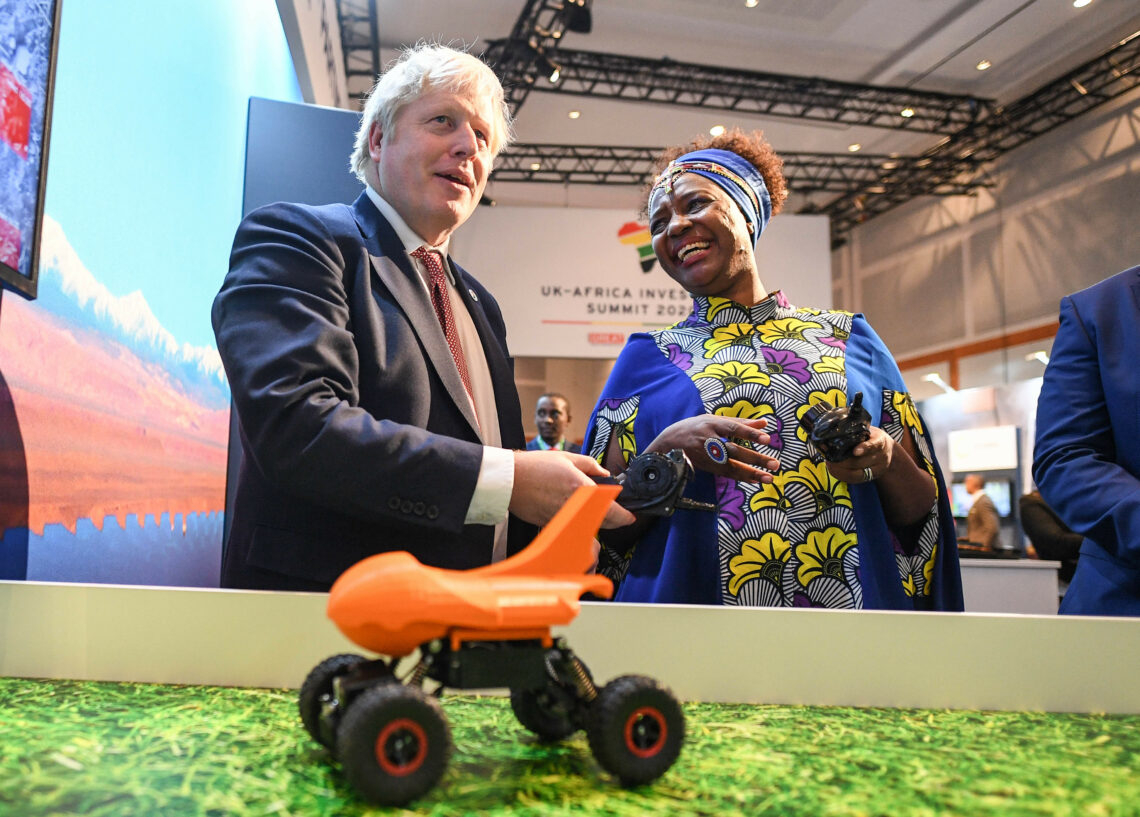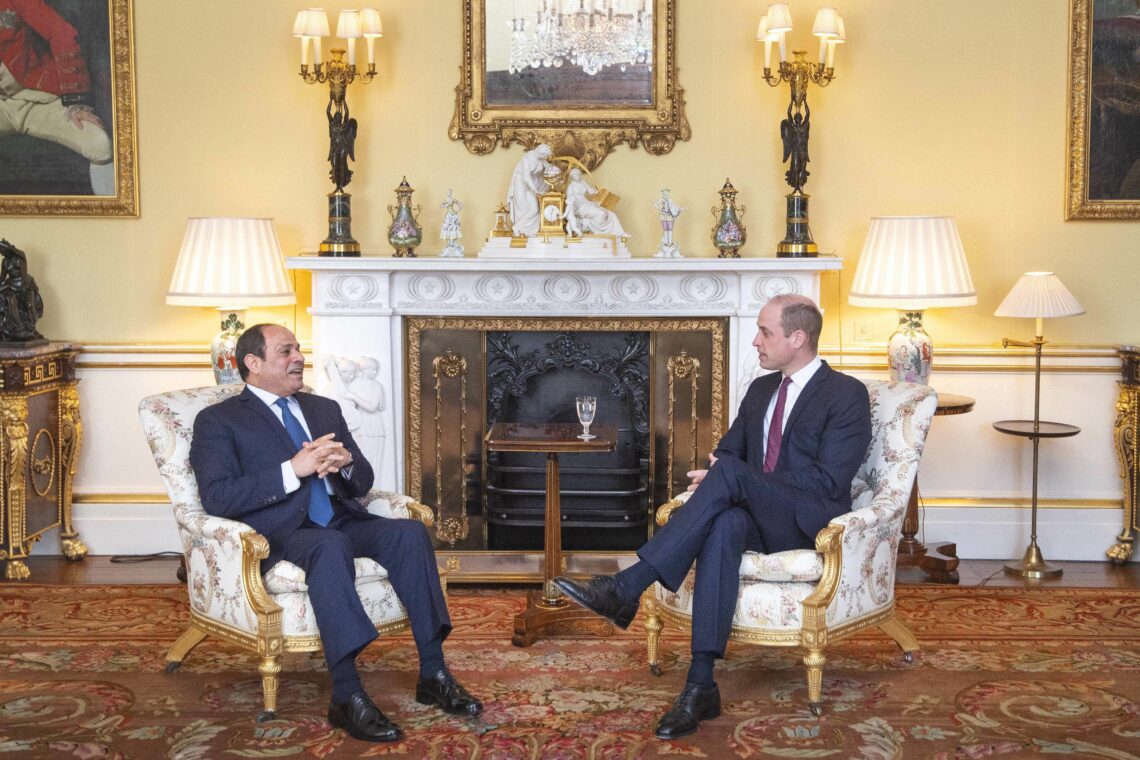The costs of Brexit for Africa
With Brexit the UK will have free rein to set its own terms when dealing with countries in Africa. So far, the British government seems to be determined to foster close ties with the continent through foreign direct investment and private sector partnerships.

In a nutshell
- The UK will need to define the terms of its trade with Africa
- London wants to maintain strong ties with the continent
- Commonwealth countries could be better off post-Brexit
With Brexit ratified, the United Kingdom will have to redefine its relationship with African countries. This adjustment is taking place amid an economic recession and increasing competition and multipolarity. In this context, adaptation and flexibility will play a crucial role.
One of the arguments in favor of Brexit was that the UK would be able to define its own terms of trade with third states once out of the customs union and single market. Until now, Britain’s trade with African countries was governed by the European Union.
Outdated framework
In September 2018, Jean-Claude Juncker proposed African countries a new “partnership of equals,” a continent-to-continent trade deal. While the implementation of such a broad framework remains unlikely in the near future, Europe and Africa are at a turning point in their relations.
The Cotonou Agreement, signed between the EU and African, Caribbean and Pacific States in 2000, expired on February 29, 2020. The treaty’s General Scheme of Preferences (GSP) was replaced by Economic Partnership Agreements (EPAs). Under the GSP, Africa’s least developed countries were granted duty-free access to European markets. However, from 2007 onward, the EU tried to replace this privileged arrangement with reciprocal agreements and planned to implement regulations at the regional level. At the moment, most of Africa’s least developed countries are still granted duty-free access to EU markets. This mixed framework has become a source of tensions between African countries rather than a driver of economic and trade integration.
In the East African Community, for example, whereas Kenya and Rwanda have called for the establishment of a partnership agreement with the EU, Tanzania and Uganda firmly rejected such a possibility. During the transition period, set to end on December 31, 2020, trade between the UK and African countries will remain regulated by the EU general preferences scheme.
UK-Africa summit
During the transition period, the UK’s priority will be to redefine trade terms and establish partnerships with key powers like the United States, India or China in an extremely challenging global context, as the world faces the economic and political consequences of the “great confinement.” But African countries are also likely to be part of the country’s post-Brexit strategy. London has reaffirmed its commitment to strong ties with Africa over the past two years by setting ambitious goals. Britain has contributed GBP 60 million to promote a strong and transparent African financial market, becoming the largest G7 investor in the continent by 2022 and the “investment partner of choice” for African countries.
London has reaffirmed its commitment to strong ties with Africa.
The UK-Africa Investment Summit of January 2020 provided important clues on what future relations could look like. On the eve of the World Economic Forum in Davos (which UK Prime Minister Boris Johnson skipped), 21 African countries took part in the summit. There were 16 heads of state in attendance, including Egyptian President Abdel-Fattah El-Sisi, Rwandan President Paul Kagame, Kenyan President Uhuru Kenyatta, Nigerian President Muhammadu Buhari and Ghanaian President Nana Akufo-Addo. Deals worth more than GBP 6 billion were announced. The Department for International Development (DFID) announced GBP 370 million worth of programs focused on developing green energy, digital technologies and basic trade infrastructure.
British and African companies also announced a series of commercial deals worth a total of GBP 6.5 billion. These included a GBP 25-million investment in Egypt by British fashion retailer Matalan; a GBP 5-million investment in Egypt by GlaxoSmithKline to rehabilitate two production lines; and a GBP 167-million investment by Diageo in East Africa to build efficient and environmentally-friendly breweries.
New mindset
After exiting the EU, Britain intended to go global, presenting itself as a champion of free trade, with no political integration strings attached. Despite the substantial economic effects of the coronavirus and the consequent change in focus and priorities, this strategy will likely resume in the medium to long term. In this context, the Commonwealth of Nations will likely become a key platform for Britain’s trade, investment and cooperation strategies.
The Commonwealth, which has 54 member states, includes developed economies like Canada and Australia, important emerging markets like India, Malaysia or Nigeria, and least developed countries like Sierra Leone or Mozambique. This year, before the pandemic, trade across the community was projected to total $1 trillion. With a population of 2.4 billion, the Commonwealth accounts for more than 17 percent of the global GDP based on purchasing power parity.
As demonstrated by the UK-Africa summit, London is likely to actively support Africa’s efforts toward continental trade facilitation and economic integration. In parallel, the 19 African Commonwealth countries will be privileged trade partners.
The summit also suggested that Britain’s relationship with African countries will focus on the private sector. Reducing aid dependency through trade, investment and cooperation in critical areas such as finance will be prioritized – a welcome development for an increasing number of African countries.
This, of course, entails a major shift in patterns of British foreign direct investment (FDI) in Africa, mostly directed toward the extractive sector. South Africa, Nigeria, Kenya (Commonwealth states) and Egypt are the main trading partners. However, ties with fast-growing economies like Ethiopia, Ghana and Rwanda are intensifying. It is also noteworthy that Prime Minister Johnson affirmed his commitment to putting “people before passports,” signifying that the country would welcome African talent with open arms.

Tough competition
While UK-Africa trade has increased over the past two years, its volume remains modest, totaling GBP 46 million in 2018. For comparison, trade between African countries and China reached $204 billion in the same year. In terms of investment, between 2014 and 2018, the UK was the third-largest investor on the continent by number of projects, after the U.S. and France. However, with FDI volume, the picture is rather different: China occupies the first position with $72,335 million, followed by France ($34,172 million). With $17,768 million, the UK is fifth.
At the 2018 Forum on China-Africa Cooperation, President Xi Jinping announced $60 billion in loans, aid and investment initiatives, mostly prioritizing connective infrastructure under the Belt and Road initiative. France remains Europe’s largest exporter to Africa, although Germany seems poised to overtake it. Furthermore, President Emmanuel Macron has been very vocal about “leaving the past behind” and reshaping his country’s relationship with the continent. Germany, in turn, has announced a “Marshall Plan in Africa” intended to foster development (and contain migration flows). Russia, India, Japan, Turkey and the United Arab Emirates have also turned their attention to African countries, moved by a combination of economic and security interests. The continent is becoming a new arena of global competition.
The UK will have a hard time keeping up with so many foreign initiatives in Africa.
The UK will not have an easy time keeping up with so many foreign initiatives in Africa, but some factors could give it an advantage. While some progress is expected in U.S.-Africa relations under the Prosper Africa initiative, Washington does not seem willing to endorse the African Continental Free Trade Area (AfCFTA) through a continental approach to trade.
Recent attempts to establish a bilateral free trade deal with Kenya have generated tensions in the East African Community, as other countries see it as a potential violation of regional and continental protocols.
Also, Africa will not be a priority for the U.S. in the medium term. The EU is now focused on internal negotiations to address an economic crisis that may soon become political. It also remains deeply divided on whether to adopt a continent-to-continent approach, while migration is expected to remain a pressing hot-button issue. The UK, now free to design its own migration policies, may find itself in a more favorable position to devote more attention to external affairs and negotiate win-win agreements with African countries.
Scenarios
In the short to medium term, relations between Britain and Africa will go through a challenging and time-consuming process of adaptation, which may adversely impact some African economies. The nature of this transition period will determine the long-term scenario, which will depend not only on the ability to conciliate various and, in some cases, diverging interests but also on the evolution of the global framework. Two main scenarios should be considered.
Uneven but positive impact
Under this most likely scenario, the benefits of Brexit will outweigh its costs in UK-Africa relations. However, the impact in Africa will be uneven, as specific countries are expected to be negatively affected in both the short and longer term. Moreover, some of the gains will be undermined by an adverse global economic climate.
A convergence of interests – including free trade, financial development and Africa’s regional integration – will facilitate the establishment of strategic partnerships. Unlike China, the EU or Germany’s broad strategies, these partnerships will be more flexible and focused, leading to a diversification of UK investments in the region. As such, it will answer the needs of African countries like Rwanda, Ghana or Ethiopia, which aim to move away from aid dependency and become developed economies.
Some African LDCs outside the Commonwealth, however, could find themselves negatively impacted by Brexit as the EU struggles to increase – or even to maintain – its aid commitments. This middle-of-the-road scenario presupposes that, despite the global recession and China’s continuous slowdown, the trend of growth and diversification that has characterized FDI flows to Africa in the last two years will resume, reflecting high return rates and advances in regional integration.
Lost opportunity
Under this second and less likely scenario, Brexit’s positive impact in Africa would be modest and concentrated in a few countries only. During the transition period, London would be overwhelmed by the need to redefine relations with the EU, the U.S. and Commonwealth heavyweights like India, Australia and Canada. Africa would be sidelined and given little diplomatic relevance. Both Britain and African countries would struggle to design an efficient trade framework.
By opting for a duty- and quota-free arrangement with Africa’s least developed countries, Britain would favor the latter and become more attractive than the EU, but the choice would affect the African Continental Free Trade Agreement. More developed countries like South Africa, Ghana, Nigeria or Tanzania could oppose such a turn of events. Uncertainty and delays, under a worst-case scenario, could have severe damages for key industries in certain countries (for example the automotive sector in South Africa or agriculture and floriculture in Kenya), since the UK market represents a significant share of these country’s total exports to the EU.







